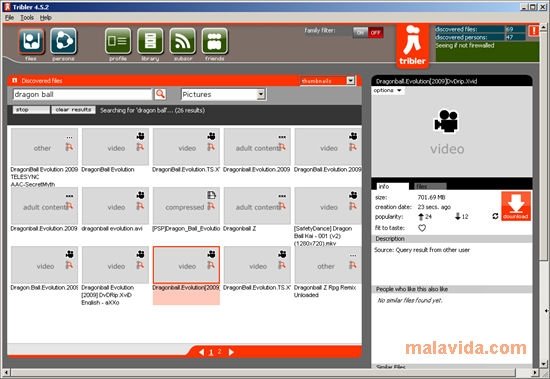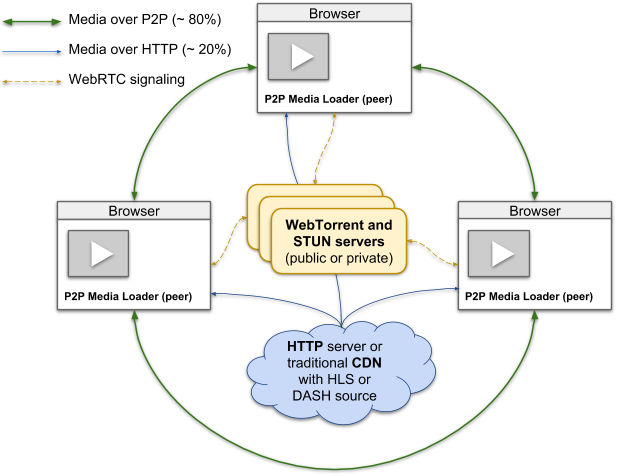
However, social phenomena such as friendship and the existence of communities of users with similar tastes or interests may well be exploited in such systems in order to increase their usability and performance. Copyright © 2007 John Wiley & Sons, Ltd.ĪB - Most current peer-to-peer (P2P) file-sharing systems treat their users as anonymous, unrelated entities, and completely disregard any social relationships between them.
#Tribler p2p media search and sharing download
We present and discuss the design of TRIBLER, and we show evidence that TRIBLER enables fast content discovery and recommendation at a low additional overhead, and a significant improvement in download performance. Based on this paradigm's main concepts such as taste buddies and friends, we have designed and implemented the TRIBLER P2P file-sharing system as a set of extensions to BitTorrent. In this paper we present a novel social-based P2P file-sharing paradigm that exploits social phenomena by maintaining social networks and using these in content discovery, content recommendation, and downloading. N2 - Most current peer-to-peer (P2P) file-sharing systems treat their users as anonymous, unrelated entities, and completely disregard any social relationships between them.

N1 - Special Issue: Recent Advances in Peer‐to‐Peer Systems and Security (P2P 2006) T1 - TRIBLER: a social-based peer-to-peer system Copyright © 2007 John Wiley & Sons, Ltd.Ībstract = "Most current peer-to-peer (P2P) file-sharing systems treat their users as anonymous, unrelated entities, and completely disregard any social relationships between them.


Most current peer-to-peer (P2P) file-sharing systems treat their users as anonymous, unrelated entities, and completely disregard any social relationships between them.


 0 kommentar(er)
0 kommentar(er)
